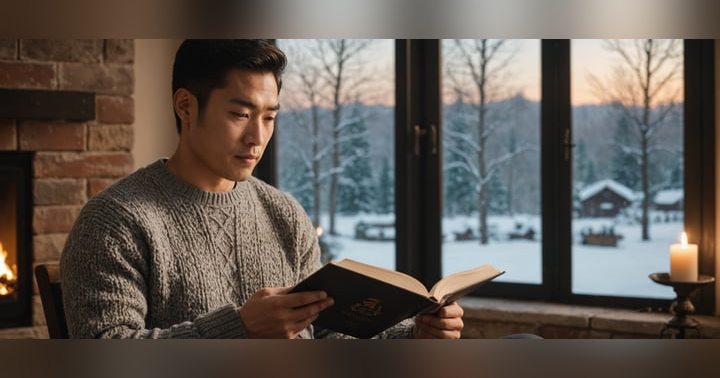The Salvation Army's LGBTQ+ Controversy: What You Need to Know Before Donating This Holiday Season

Do Good, But At What Cost?
As the holiday season approaches, many of us will encounter the familiar sight of Santas ringing bells outside malls, encouraging donations to the Salvation Army's Red Kettle Campaign. It's one of the most recognizable charity drives of the season, and as a charity, you might not think twice before contributing. However, in recent years, a growing conversation has raised concerns about the Salvation Army's past actions and stances toward the LGBTQ+ community.
The Salvation Army has done significant work to help those in need, but it has also been criticized for actions that have harmed LGBTQ+ individuals. Both of these truths can coexist, and as members of the LGBTQ+ community, it's essential to be mindful of where our dollars go, especially when some organizations may use our contributions to fund causes that don’t have our best interests at heart.
The Salvation Army: A Global Mission of Service
The Salvation Army is an international movement operating in 134 countries, with a membership of over 1.8 million people worldwide. In the United States alone, the organization assisted more than 27 million individuals in 2023, providing a wide array of services to meet urgent human needs.
The organization's mission is rooted in evangelical Christian values and is motivated by the love of God. The Salvation Army's goal is to spread the gospel of Jesus Christ while addressing the physical, emotional, and spiritual needs of people, without discrimination.
Its origins date back more than 170 years. In 1852, William Booth began preaching in London but soon abandoned traditional pulpit preaching to reach those living on the streets. With his wife Catherine, Booth sought to minister to London's poor, homeless, and destitute, facing criticism from other clergy members. In 1865, they established a mission in London's East End, which quickly gained followers.
Initially called The Christian Mission, their organization grew rapidly. Within a decade, more than 1,000 volunteers and evangelists were spreading their message. Early converts included individuals from marginalized groups, such as thieves, prostitutes, and gamblers, many of whom went on to become preachers and evangelists themselves.
In 1878, Booth renamed The Christian Mission to The Salvation Army, adopting a military-style structure with "Salvationists" as soldiers. Despite facing violence and persecution, the organization grew, converting 250,000 people across the British Isles between 1881 and 1885. This expansion led to the Salvation Army's international reach, with branches forming in countries including the United States, Canada, Australia, France, and India.
One of the Salvation Army's most well-known initiatives, the Red Kettle Campaign, began in 1891. Captain Joseph McFee, inspired by a similar practice in Liverpool, placed a kettle at the Oakland Ferry Landing in California to raise funds for a Christmas meal for the community. The campaign quickly spread along the West Coast and then nationwide.
By 1897, the Red Kettle Campaign had provided 150,000 Christmas dinners, becoming an annual tradition. Today, donations to the Red Kettle continue to support a wide range of services for millions of people, including disaster response, social services, veterans' support, and more.
Additionally, the Salvation Army’s Red Kettle donations fund numerous programs aimed at supporting individuals in need, such as:
- Religious services and inclusive worship spaces across the U.S.
- Disaster relief for survivors of natural and man-made crises
- Social services, including food, shelter, clothing, and financial support
- Counseling, health care, and abuse support services
- Youth programs focused on music, sports, arts, crafts, and family counseling
- Senior centers, including subsidized housing for older adults through Silvercrest
- Christmas programs that provide financial aid, toys, and meals
- Advocacy for human and sexual trafficking victims, including policy work and support services
- Veterans’ services offering counseling, housing, and comfort for veterans
- Prison services, including Bible courses, job training, and support for inmates and their families
The Salvation Army's Controversial Stance on LGBTQ+ Rights
As a faith-based organization, the Salvation Army's views on LGBTQ+ issues have sparked considerable controversy over the years. This has become more evident through a history of decisions and actions that have been widely seen as discriminatory. The organization's complicated relationship with the LGBTQ+ community dates back decades and continues to attract attention.
In 2013, transgender activist Zinnia Jones published an article on Huffington Post detailing the Salvation Army's history of anti-LGBTQ+ actions. Jones highlighted several key incidents, such as the organization's opposition to the Homosexual Law Reform Act in New Zealand in 1986, which aimed to decriminalize same-sex relations between consenting adults. The Salvation Army later apologized for this stance in 2008, acknowledging the harm caused to the LGBTQ+ community and expressing a desire to rebuild bridges.
In the U.S., the Salvation Army has faced criticism for its refusal to comply with local anti-discrimination laws. In 1998, the Salvation Army declined a $3.5 million contract with San Francisco because the city required contractors to extend spousal benefits to same-sex partners. A Salvation Army spokesperson argued that this was not a matter of discrimination, but rather a matter of the organization's religious beliefs. Similar controversies arose in 2000 and 2004 when the organization opposed non-discrimination ordinances in Scotland and New York, which would have required them to offer benefits to same-sex couples.
More recently, in 2012, several incidents further exacerbated the Salvation Army's strained relationship with the LGBTQ+ community. In Burlington, Vermont, a caseworker alleged she was fired for being bisexual, citing the organization's handbook, which stated that employees’ conduct could be evaluated based on compatibility with Salvation Army principles. Around the same time, a Salvation Army bell ringer in Canada was seen carrying a sign saying, "If you support gay rights, please do not donate." Although the Salvation Army distanced itself from the incident, the damage was done.
The organization also faced backlash in 2013 when it was revealed that its website had linked to conversion therapy organizations. Although the Salvation Army removed these links after the public outcry, the damage to its reputation persisted.
In 2019, pop star Ellie Goulding raised eyebrows when she threatened to cancel her performance at the Cowboys’ Thanksgiving halftime show, a key event for the Salvation Army’s annual Red Kettle Campaign, due to concerns over the charity’s anti-LGBTQ+ views. After consulting with the organization, Goulding went ahead with the performance, but her initial stance highlighted the ongoing controversy surrounding the Salvation Army.
Despite these controversies, the Salvation Army has continued to receive significant support, including from corporate sponsors. However, as demonstrated in 2019, companies like Chick-fil-A have decided to cut ties with the organization, reflecting the growing scrutiny over its stance on LGBTQ+ rights. Similarly, in 2022, Macy's announced it would sever its relationship with the Salvation Army, though the company did not specify whether the decision was related to the charity's LGBTQ+ issues.
Salvation Army’s Efforts for the LGBTQ+ Community: A Complicated Narrative
In response to growing criticism over its stance on LGBTQ+ rights, the Salvation Army attempted to defend its record in 2019. Dave Hudson, the organization's National Commander at the time, published an op-ed in USA Today addressing the controversy and highlighting the ways in which the Salvation Army serves the LGBTQ+ community.
Hudson pointed out that the Salvation Army provides essential services to millions, including an estimated 23 million people annually, some of whom are presumed to be LGBTQ+. Among the organization's initiatives, it operates a Las Vegas dorm exclusively for transgender individuals and reports that about 20% of those staying at the Harbor Light shelter in Minneapolis identify as LGBTQ+. In Baltimore, the Salvation Army works with local officials to address the rising problem of trafficking among transgender individuals.
Additionally, the Salvation Army’s website features a dedicated page for LGBTQ+ support, detailing the organization's commitment to assisting individuals in areas such as homelessness, food insecurity, substance abuse, suicide prevention, and job training. The site also includes testimonials from LGBTQ+ individuals who have benefitted from the Salvation Army’s services, along with statements affirming its policies of equal opportunity employment and non-discrimination in its programs.
Despite these efforts, there remains a noticeable tension between the Salvation Army’s public services for LGBTQ+ individuals and its past record of anti-LGBTQ+ actions and lobbying. While the organization undoubtedly provides critical support to marginalized communities, including LGBTQ+ people, its history of opposition to LGBTQ+ rights raises questions about its true stance on these issues. This ongoing contradiction continues to spark debate about the extent to which the organization can be considered an ally to the LGBTQ+ community.
LGBTQ+ Charities to Support This Holiday Season
If you're feeling conflicted about donating to the Salvation Army but still want to give back this holiday season, there are many LGBTQ+ organizations that could use your support. These nonprofits work tirelessly to advocate for, provide services to, and uplift the LGBTQ+ community in various ways:
- The Trevor Project – Provides crisis intervention and suicide prevention services for LGBTQ+ youth.
- True Colors United – Works to end homelessness among LGBTQ+ youth.
- The Ali Forney Center – Supports homeless LGBTQ+ youth with housing and job.
- GLAAD – Promotes LGBTQ+ representation in the media and combats media discrimination.
- SAGE – Provides housing, resources, and advocacy for older LGBTQ+ adults.
- Advocates for Trans Equality – Advocates for policy changes to improve the rights of transgender individuals.
- Lambda Legal – Offers legal support and advocacy for LGBTQ+ rights.
And don't forget to support your local equality center, which provides vital resources and services for the LGBTQ+ community in your area.
Supporting Inclusive Organizations
While The Salvation Army provides important services, its history of anti-LGBTQ+ actions and statements cannot be overlooked. Despite efforts to repair its relationship with the community, meaningful change requires more than just words—it demands sustained, accountable action. For many LGBTQ+ individuals, these issues are deeply personal, and the harm caused by past actions is significant.
As such, many are shifting their focus to organizations that have demonstrated a more consistent commitment to LGBTQ+ inclusivity. While individuals must decide for themselves whether to continue supporting The Salvation Army, it’s clear that there are other charities that stand in strong partnership with the LGBTQ+ community. Moving forward, it’s crucial to direct support toward organizations that proactively create safe, inclusive spaces and foster genuine allyship.
And remember: every day is all we have, so you've got to make your own happiness.
For more information on this topic, listen to Episode 131. Ringing in Controversy: The Salvation Army's Complicated Relationship with the LGBTQ+ Community.
Tune into your favorite podcast player every Tuesday for new episodes of A Jaded Gay.


















